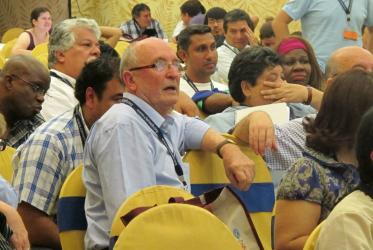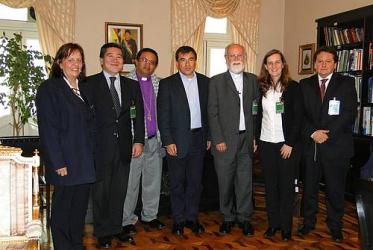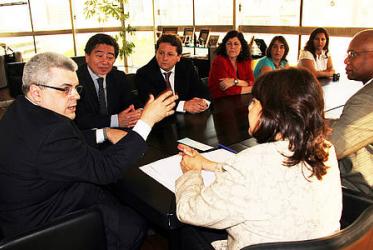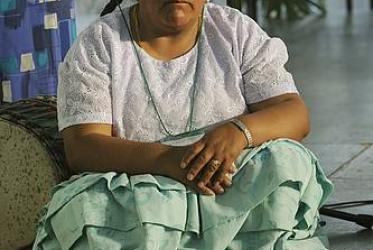Displaying 1 - 20 of 24
WCC mourns the death of Federico Pagura
09 June 2016
WCC greets new general secretary of CLAI
07 August 2015
WCC member churches commit to climate justice at COP 20
10 December 2014
Statement on global economy delivered to Bolivia
15 January 2013
Christian self-understanding in the context of indigenous religions
14 February 2012
Prophetic diakonia is an important tool of transformation
28 November 2011
WCC supports Ecuador’s Yasuni project
13 October 2011









